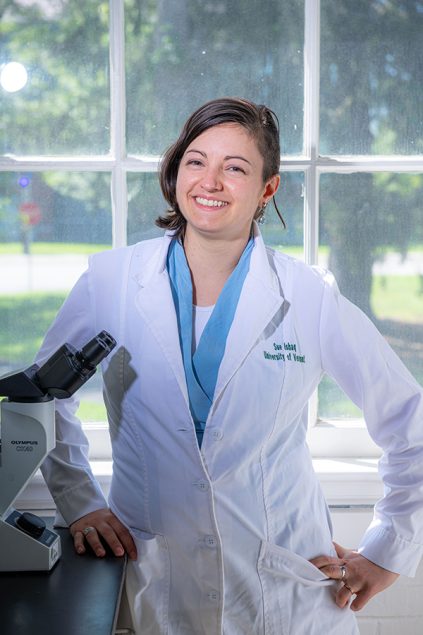Sue Ishaq
Expertise
? Agriculture, ?Biomedical science, ? Dairy, ? Genetics, ? Health and the environment, ? Human health, ? Livestock, ? Nutrition, ? Pathogens, ? Public health
Ishaq studies the lifestyle circumstances that shape microbial communities of animals and humans, including mouse models, aquacultured marine animals, wild animals, and livestock. She aims to discover how to recover a stable microbial community in humans and animals that have developed chronic microbial community dysfunction and disease.
Current work includes to use of gut microbes to create anti-inflammatory compounds from the diet to reduce inflammation in people, where marine animals acquire their microbes and how that can be used to improve animal health in aquaculture facilitates, and generally how microbes are shared between animals and the environment to understand the effect on animal health. Ishaq also founded the Microbes and Social Equity Working Group. Visit Ishaq’s biography to learn more.

Appointment details
Ishaq’s work is supported by:
- School of Food and Agriculture at the College of Natural Sciences, Forestry and Agriculture
- Maine Agricultural and Forest Experiment Station
Experiment Station contributions
- Current project: Exploring animal microbiomes from farm, fishery, food, and forest. Hatch project number ME022329.
- Past project: Recovering Microbial Communities in the Gastrointestinal Tract from Dysbiotic States. Hatch project number ME022102.

